Delhi carrots have been in season for a while, and one of the best things to do with them is to turn them into delicious Gajar halwa— a light (if prepared this way) and relatively healthy preparation for the winters. This is something I cook up more than twice a year, and have been working on a recipe that maximises its nutritive value (in providing adequate fibre, beta carotene and potassium).
Everyone knows carrots are good for you. The whole idea of them being good for your eyes has its roots in WWII era British propaganda, which claimed that they put their pilots on a diet of carrots to improve their night vision. This was actually a ploy to distract everyone from the idea that it was actually radar that helped them see during blackouts, not carrot enhanced pilots.
Carrots are a great source of fibre, and much of this can be lost if the carrots are prepared in a blender or food processor, as some recipes suggest. I prefer grating the carrots in long slivers (holding the carrot at an angle along the grater surface helps achieve this) instead, to maintain this quality. It’s important that you use a grater with larger holes, since it not only creates larger slivers, but is also easier on the hands, as grating a kilo of carrots can actually give you Carpal Tunnel syndrome (this actually happened to me, when I was grating carrots with one of those tiny little graters). Choosing fresh, tender carrots also makes this easier, while also yielding a more tender halwa.
There’s also much debate about the sort of milk one should consume. Logically, toned milk seems like the better option, since most of the fat is removed from it. The fact of the matter however, is that most of the nutrients in milk are fat soluble, and are also actually removed with this process. This might actually imply that consuming full cream milk might actually be better for you than low fat varieties. On the other side of the spectrum, there’s also the use of condensed milk instead of milk and sugar. I don’t really recommend this, since much of the fat in condensed milk is saturated fat, which isn’t good for your cardiovascular well being. I’ve also been trying to avoid using processed food as far as possible, because processed food, in order to have a greater shelf life, would have nutrients removed from it (since all the bugs and bacteria that spoil food love those nutrients as much as we do) or have chemical preservatives that do strange unknown things inside our bodies.
Considering the fact that the only fat in this recipe is from a small quantity of ghee and the natural cream in whole milk, this might actually be amongst the healthier desserts you could make. There is also a certain amount of refined sugar in it, which you could possibly substitute with brown sugar (tasting along the way till it reaches the balance of sweetness you desire, keeping in mind not to exceed 200g, which would defeat the purpose of the exercise). Of course, any sweet dish in excess isn’t going to be good for you, so do consume in moderation (it also helps you relish it more, I think).
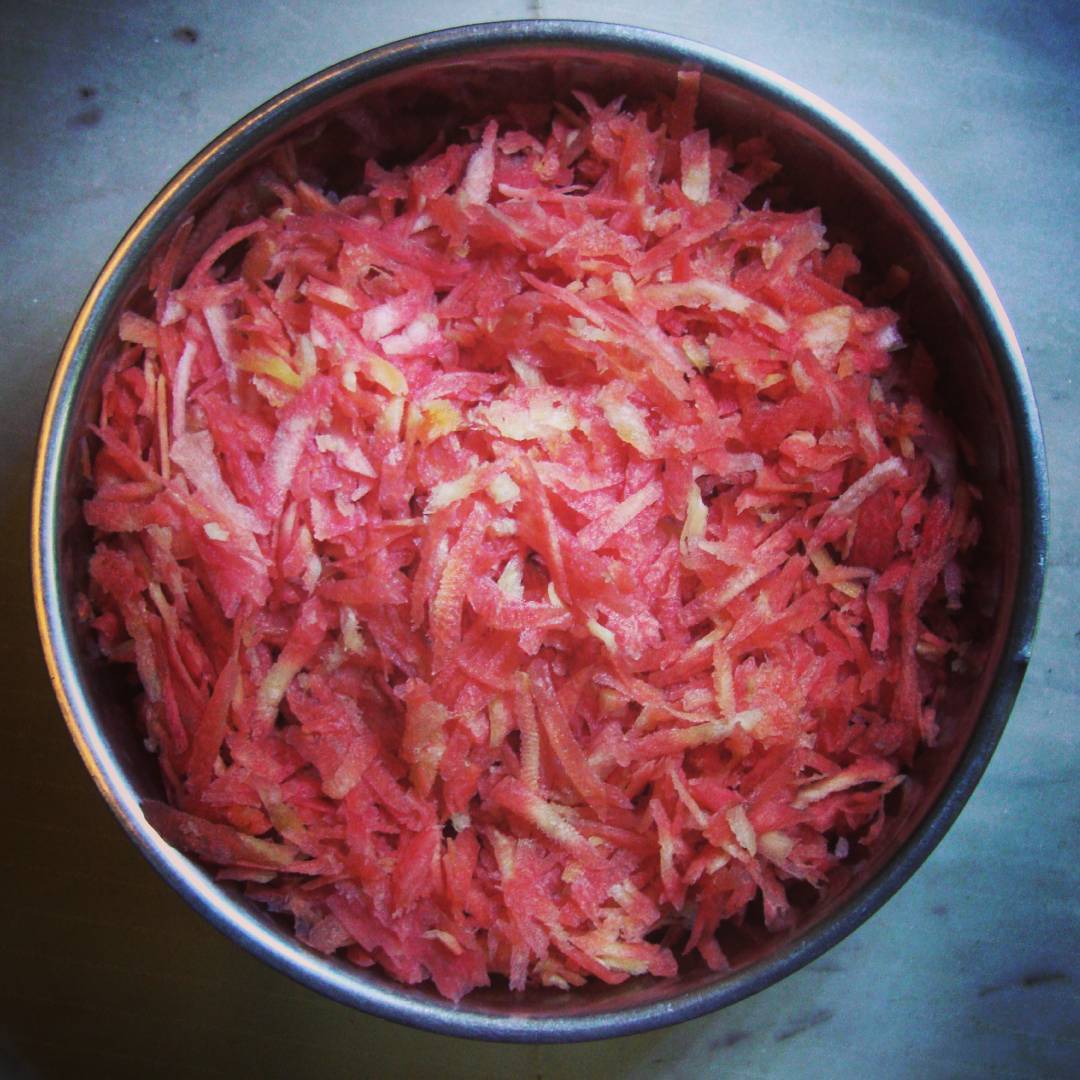 If you don’t want to slow cook the halwa, you could also make it in a pressure cooker. I personally prefer the slow cooking method because it allows you to keep stirring the mix to prevent cream from rising up to the surface and staying there, as opposed to getting deliciously cooked with the carrots when you stir it in.
If you don’t want to slow cook the halwa, you could also make it in a pressure cooker. I personally prefer the slow cooking method because it allows you to keep stirring the mix to prevent cream from rising up to the surface and staying there, as opposed to getting deliciously cooked with the carrots when you stir it in.
You can also play around with the texture of final halwa by choosing to remove the almonds and raisins right after sautéing them in the ghee, and returning them to the mix only at the end. This would retain their bite and crunch, making for a greater contrast of textures. The almonds tend to soften when you slow cook them; but this isn’t a texture I really mind.
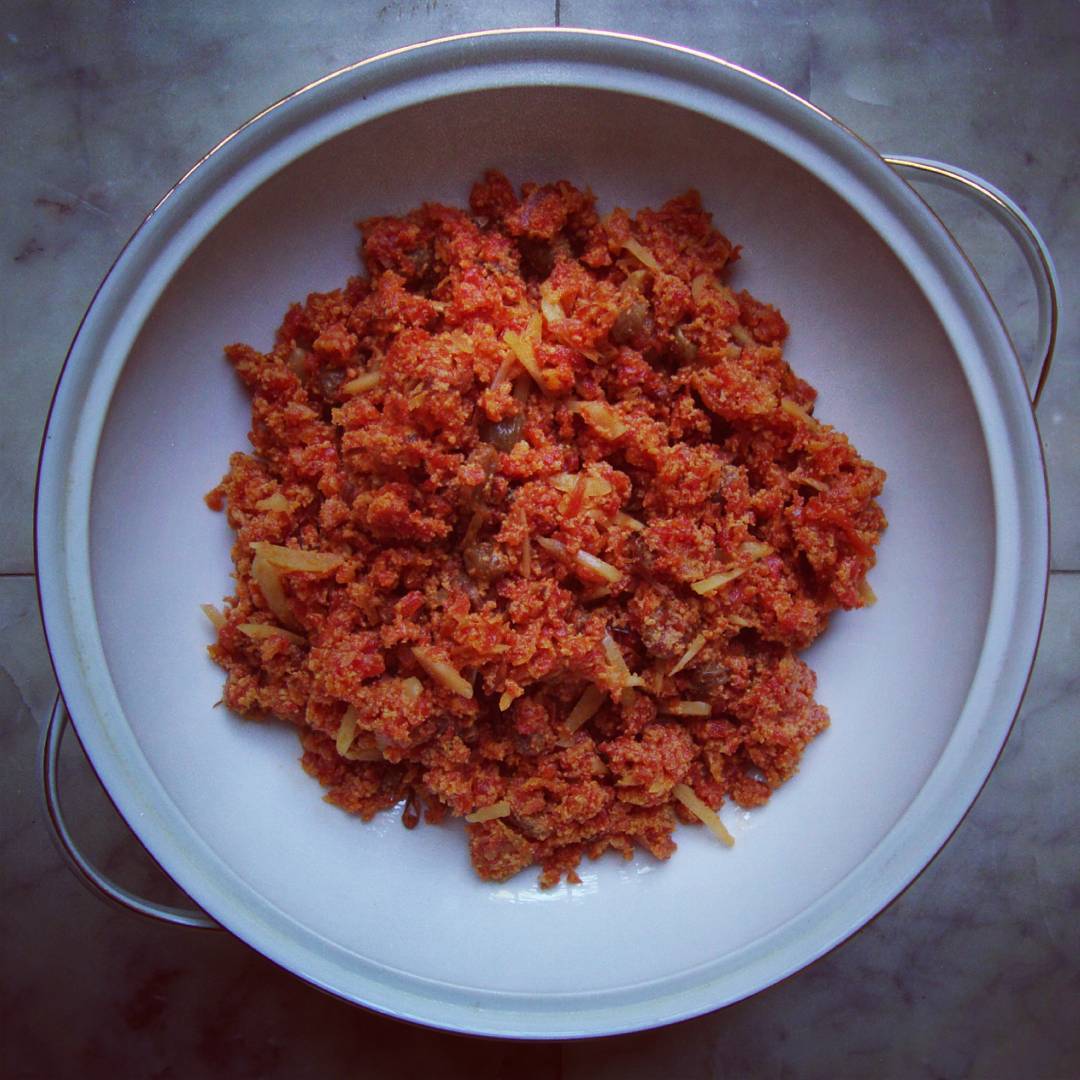 I always buy more carrots than the recipe defines, because I do enjoy crunching on a few while I cook. Raw carrots have a greater nutritive value than cooked ones, except maybe in the delivery of beta Cartotene, which becomes more accessible on cooking.
I always buy more carrots than the recipe defines, because I do enjoy crunching on a few while I cook. Raw carrots have a greater nutritive value than cooked ones, except maybe in the delivery of beta Cartotene, which becomes more accessible on cooking.
Delhi carrots will remain in season through the first quarter of the year, and this dessert is one of those rare ones that will actually imbibe you with nutrients while also satiating your desire for a sugar fix. It’s certainly more nutritious and carries less calories than ice cream, but if you like to live dangerously, you could serve warm halwa with vanilla ice cream.
The Recipe
Ingredients
Method
- Wash, peel and grate the carrots. Using a grater with medium or large sized holes (as opposed to tiny holes) with long, firm strokes yields larger grated slivers of carrot, which yield a better texture to the final halwa.
- In a large crock pot or saucepan, sauté almonds in ghee for a few minutes
- Add the raisins and fry till they swell, making sure you stir often so they they don’t burn on one side.
- Add the carrots and sauté till their colour changes and becomes a little darker.
- Add milk, bring to a simmer and in about 15 minutes add the sugar.
- Add the saffron and stir occasionally.
- Towards the end of the cook (once you see only a little bit of the liquid left), powder the cardamom and add, along with the allspice and cinnamon.
- Cook till all the liquid has evaporated away.
- The entire cooking process will take around an hour and twenty minutes with the preferred slow-cooking method, or about 25-30 minutes in a pressure cooker.


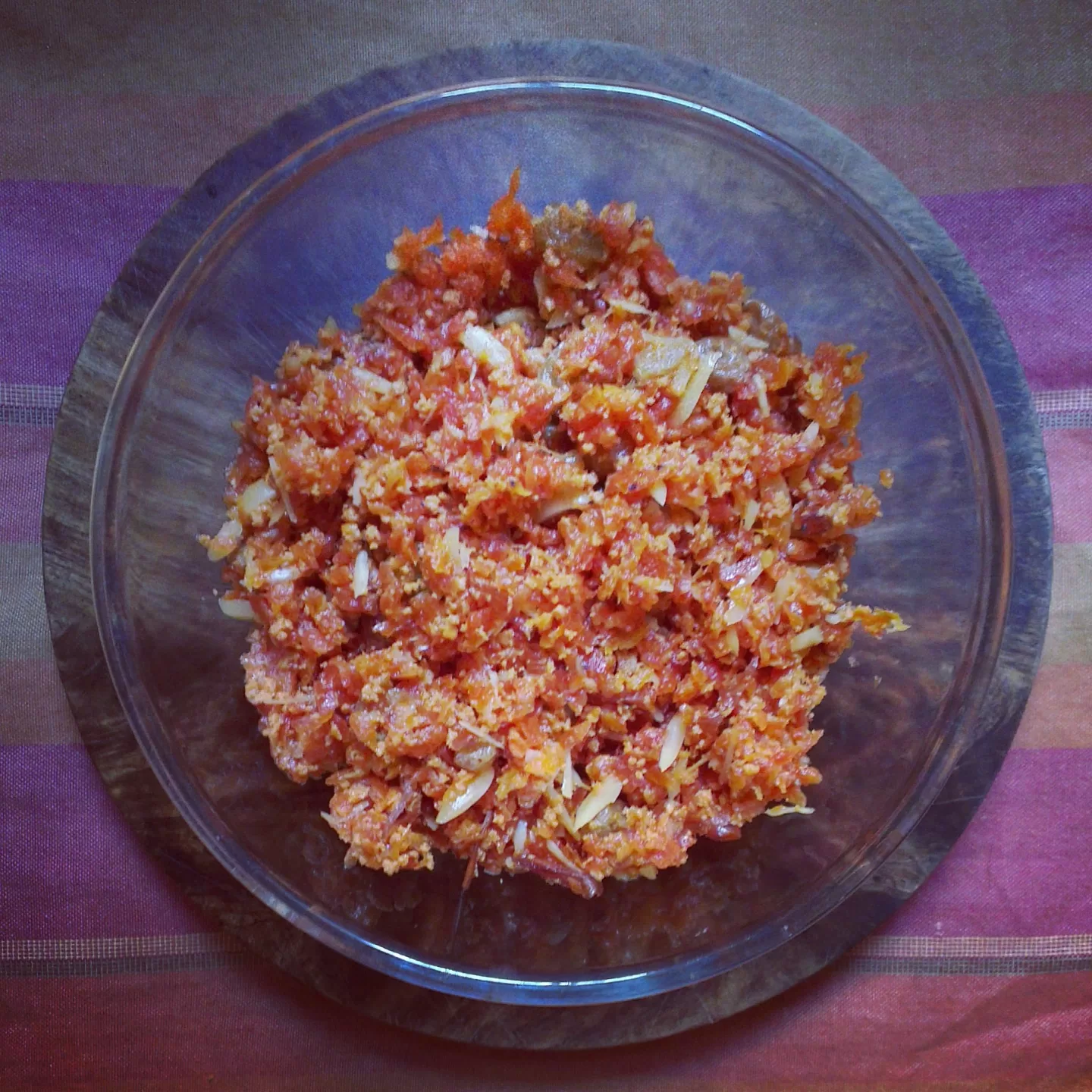
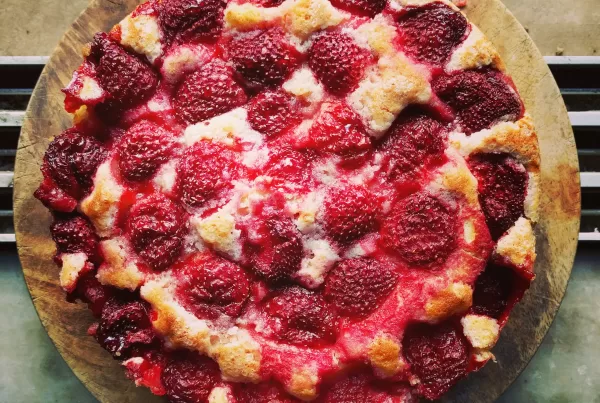
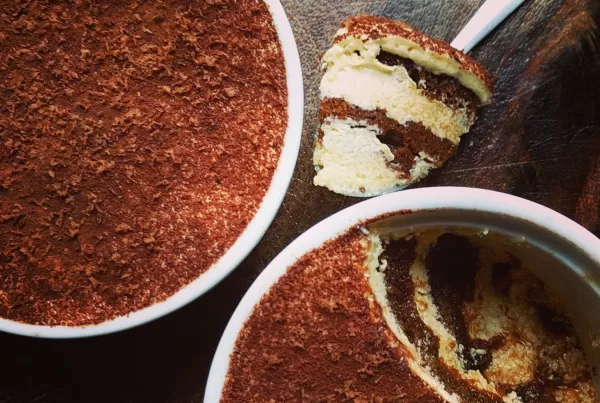
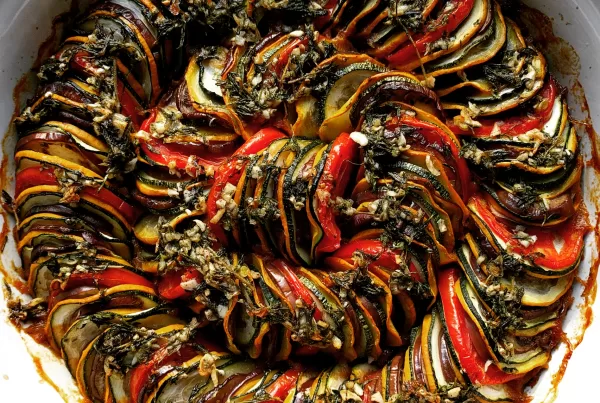


To make 2&1/2 kg carrot halwa how much ingredients required?
Just multiply all the quantities by 2½, so:
2½kg of the reddest Delhi carrots
6¼ tablespoon ghee
2½litre Milk (full cream)
375g sugar
Saffron (63 stamens)
186g raisins
125g slivered almonds
10 cardamom pods
½tsp allspice
2½ pinches of cinnamon